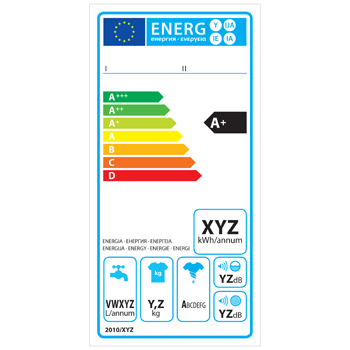All new HDTV sets sold in the United Kingdom from December this year onwards will be legally required to sport an EU energy label intended to help buyers identify the TVs that consume the least power. It is part of a wider European Union directive to introduce energy efficiency labels on a range of electrical appliances such as washing machines, dishwashers and freezers.

The new European Energy Label will depict a spectrum of coloured bars, ranging from the most energy-efficient dark green to the most power-hungry red. Each coloured bar will also be assigned a rating: the current scale of A to G will be bolstered by A+, A++ and even A+++ scores to give extra credit to products that are extremely frugal in terms of power consumption. In addition, the label will also display several figures including kWh (kilowatt-hour) which represents the amount of energy used in an hour. Consumers can then compare this figure easily between electrical items to find the one that consumes the least energy (i.e. the one with the lowest kWh).
Of course, this energy labelling scheme does not cover only television sets, but also other electrical appliances like washing machines, tumble dryers, dishwashers, air conditioners, electric ovens, fridges, freezers and light bulbs. Although the new EU Energy Label is compulsory on these products as of the 20th of June 2011, the deadline for TVs has been extended to around one year from the 20th of December 2010 when the European energy saving labels were first introduced on a voluntary basis.
More electrical items, such as boilers and vacuum cleaners, are expected to carry this label in the future. Besides being displayed at the point of sale (for example on the packaging or the product itself), the new energy saving ratings may also show up in print advertisements. Caroline Spelman, the UK’s environment secretary, hopes that the introduction of the European Energy Label will make it easier for the public to choose more energy-efficient products to bring down their household bills.
Source: DirectGov